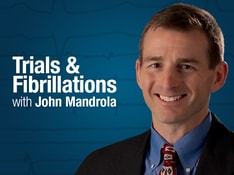A group of private benefactors has donated $17 million to fund the first psychedelic research center in the United States.
The Center for Psychedelic & Consciousness Research at Johns Hopkins Medicine in Baltimore, Maryland, "reflects a new era of research in therapeutics and the mind through studying this unique and remarkable class of pharmacological compounds," Roland Griffiths, PhD, the center's director, said in a statement.
"We've been conducting research with psychedelics at Johns Hopkins for almost the last 20 years, but funding has not been forthcoming from federal sources as yet so the work has primarily been supported by philanthropy," Griffiths told Medscape Medical News.
There is tremendous "hope and upside potential" with psilocybin, the psychoactive ingredient in "magic mushrooms," and other psychedelics and this "very large philanthropic gift has allowed the establishment of the first center for psychedelic research in the United States," said Griffiths.
The center's operational expenses for the first 5 years will be covered by private funding from the Steven & Alexandra Cohen Foundation and four philanthropists, including author and investor Tim Ferriss; Matt Mullenweg, co-founder of WordPress; Blake Mycoskie, founder of the shoe brand TOMS; and investor Craig Nerenberg.
The funding will support a team of six faculty neuroscientists, experimental psychologists, and clinicians with expertise in psychedelic science, as well as five postdoctoral scientists.
The faculty will train graduate and medical students who want to pursue careers in psychedelic science, where historically there have been few avenues for career advancement.
Altered Perception of Psychedelics
Initial priority projects include researching the potential of psilocybin as a therapy for anorexia nervosa, early stage Alzheimer's disease, opioid use disorder, posttraumatic stress disorder (PTSD), posttreatment Lyme disease, and alcohol use disorder comorbid with depression.
Based on research to date, the nature of the changes that occur during a psilocybin session would appear to have "transdiagnostic generality" across a range of mental health and behavioral conditions, Griffiths said.
He added that there are "very strong preliminary signals" that psilocybin is an effective treatment for cancer patients who are anxious or depressed.
"We also have promising efficacy data in people with major depression as well as treatment-resistant depression; and we have indication of potential efficacy across a range of substance use disorders, including alcohol and cocaine abuse and cigarette smoking," he said.
For patients with depression secondary to a diagnosis of early Alzheimer's disease, Griffiths said his team "strongly suspects" psilocybin will be effective at least for the mood disorder "but, of course, the really interesting thing would be whether there is any change in cognitive function."
"The emerging data with psilocybin and other psychedelics is that they may produce neuroplastic changes, they may end up rewiring the brain in ways we simply don't understand," Griffiths added.
The research team will also probe the precise mechanisms of action of psilocybin and other psychedelics, which are poorly understood.
"What is going on at the level of the nervous system that makes the psilocybin experience so salient and enduringly positive? That's what we need to find out," Griffiths said.
The researchers will also delve into the potential of psychedelics to support creativity and well-being in healthy volunteers.
"Interest in psychedelic research has been increasing markedly, particularly over the last 5 years, and we anticipate and hope that federal funding will come online for much of this research at some point," said Griffiths.
"Game Changer"
Last week, as reported by Medscape Medical News, the US Food and Drug Administration (FDA) granted psilocybin breakthrough therapy designation for major depression.
"This is the largest pledge in history for psychedelic research, indicating that many people are realizing the great potential it has for use in medical treatment once the research has convincingly demonstrated those benefits," George Greer, MD, psychiatrist and president of the Heffter Research Institute, a nonprofit that supports research into psychedelics, told Medscape Medical News.
William McDonald, MD, corresponding member of the American Psychiatric Association (APA) Council on Research, is equally optimistic. The data on the efficacy of psychedelic compounds and psychedelic-assisted therapy in the treatment of a range of psychiatric disorders is "increasing exponentially," he told Medscape Medical News.
However, much work lies ahead, said McDonald, who is also a professor in the Department of Psychiatry and Behavioral Sciences and chief of the Division of Geriatric Psychiatry at Atlanta's Emory University School of Medicine.
He noted that the APA's Council of Research Workgroup on Biomarkers and Novel Treatments, recently reviewed the existing data on psychedelics and concluded that the evidence is "insufficient for FDA approval of any psychedelic compound for routine clinical use in psychiatric disorders, but continued research into the efficacy of psychedelics for the treatment of psychiatric disorders is clearly an important step in the discovery of novel psychiatric treatments."
The funding of the Johns Hopkins Center for Psychedelic & Consciousness Research with private donations "may well be a game changer in the understanding of the efficacy of these compounds in psychiatric disorders and the neurobiology of complex psychological processes such as empathy, mystical experiences, and creativity."
"Hopefully, this investment will encourage more federal funding in this important area," said McDonald.
However, "of real concern is the fact that the routine clinical use of some of these compounds appears to be outpacing the available data. The clinical practice of micro-dosing LSD or psilocybin to enhance creativity or a therapeutic alliance is not validated by the available research," he cautioned.
Griffiths is a member of the board of directors of the Heffter Research Institute. McDonald has disclosed no relevant financial relationships.
For more Medscape Psychiatry news, join us on Facebook and Twitter.
Medscape Medical News © 2019
Cite this: Megan Brooks. First US Center for Psychedelic Research a 'Game Changer' - Medscape - Dec 02, 2019.








Comments